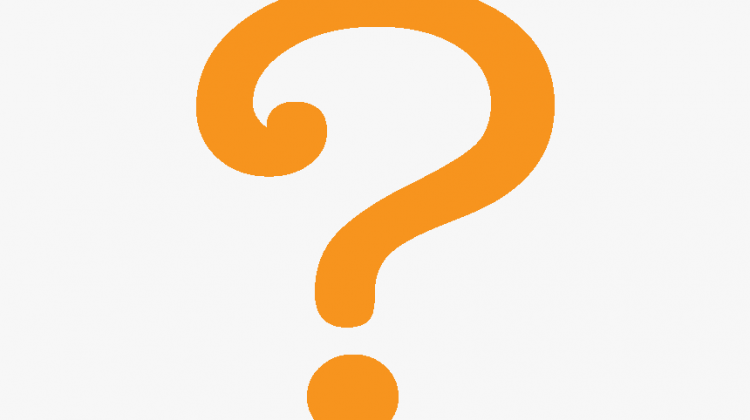
What does the Ghanaian want for Ghana and themselves?
This may sound to be a stupid statement but let us all work with it and let us see how far we can go to explore its merits if any, that will accrue to us. We celebrated when Kwame Nkrumah stood at the Old Polo ground and stated thus: “At last, Ghana your beloved country is free, Freedom, Freedom, God bless you all….” The euphoria and gladness that greeted that statement was overwhelming because our fore-fathers had gone through a lot and for us to be free from all those was very remarkable.
Let us spend some time to recount our history to know where we were until that fateful 6th March 1957, Independence declaration. Our name Ghana is related to the medieval Ghana that existed between the 4th to the 13th century which means the Republic of Ghana is named after the medieval Ghana Empire of West Africa. The actual name of the Empire was Wagadugu. Ghana was the title of the kings who ruled the kingdom. It was controlled by Sundiata in 1240 AD, and absorbed into the larger Mali Empire. The old Ghana lay geographically, about 500 miles north of the present Ghana, and occupied the area between Rivers Senegal and Niger. It is believed that some of the present day Ghana had ancestors linked with the medieval Ghana and can be traced down to the Mande and Voltaic people of Northern Ghana, the Mamprussi, Dagomba and the Gonja. There also is the evidence that the Akans are connected to this great empire.
Gold Coast and European Exploration.
I list below the fact line about the Gold Coast which will eventually become the Republic of Ghana:
1.The Portuguese had arrived in the Gold coast around the 15th Century when they found so much Gold between the rivers Ankobra and the Volta, they therefore named the place “Mina”, the Portuguese word for Mine(Later it will be called Elmina). However after so many tussles to claim the territory by the Danes, the Dutch, the French and the British, the coast, where all the battles went on would be called the Gold Coast by the British. In 1482, the Portuguese built a castle in Elmina. Their aim was to trade in gold, ivory and slaves. In 1481 King John II of Portugal sent Diego d’Azambuja to build this castle.
In 1598 the Dutch joined them, and built forts at Komenda and Kormantsil. In 1637 they captured the castle from the Portuguese and that of Axim in 1642 (Fort St Anthony). Other European traders joined in by the mid 18th century. These were the English, Danes and Swedes. The coastline was dotted by forts built by the Dutch, British and the Dane merchants. By the latter part of 19th century the Dutch and the British were the only traders left. And when the Dutch withdrew in 1874, Britain made the Gold Coast a crown colony.
As all these were unfolding in the Coast, the Ashanti’s were engaged in bitter warfare with the other territories and it would take a lot of wars between the British and the Ashanti’s for the latter and the other northern territories to become part of the British colony of the Gold Coast by 1901.The first Britons arrived in the early 19th century as traders in Ghana. But with their close relationship with the coastal people especially the Fantes, the Ashanti’s became their enemies.
Economic and Social Development (Before 1957)
1874: Gold Mine in Wassa and Asante. Between 1946-1950 gold export rose from 6 million pounds to 9 million pounds.
Political Movements and Nationalism in Ghana (1945 – 1957)
The educated Ghanaians had always been in the fore-front of constructive movements. Names that come into mind are: Dr Aggrey, George Ferguson, John Mensah Sarbah. Others like king Ghartey IV of Winneba, Otumfuo Osei Agyeman Prempeh I raised the political consciousness of their subjects. However, movements towards political freedom started soon after the Second World War. Immediately after the Second World War and the formation of the United Nations and its Charter on Fundamental Human Rights would lead to the agitation for freedom for all colonised territories of the world. The Bandung Conference in Asia in 1946, which would lead the Asian territories to be given their independence in 1947(India and Pakistan and later the Ceylon becoming Sri Lanka and others would followed soon).
This happened because suddenly people realised that colonisation was a form of oppression, similar to the oppression they have just fought against. The war veterans had become radical. The myth surrounding the Whiteman has been broken. The rulers were considered economic cheats; their arrogance had become very offensive. They had the ruling class attitude, and some of the young District Commissioner (DC) treated the old chiefs as if they were their subjects. The white colonialist never paid to the local employees was very bad. With the exception of the urban areas the education given to the rural communities was not good either and the same was the case with health. Up to 1950 the Government Secondary schools in the country were second class as compared to those built by the missionaries.
There was also the rejection of African culture to some extent. Some external forces also contributed to this feeling. African- Americans such as Marcus Garvey and WE Du Bois raised strong Pan-African conscience.
In 1945 a conference was held in Manchester to promote Pan African ideas. This was attended by Nkrumah of Ghana, Azikwe of Nigeria and Wallace Johnson of Sierra Leone. The India and Pakistani independence catalysed this desire. Sir Alan Burns’s constitution of 1946 provided new legislative council that was made of the Governor as the President, 6 government officials, 6 nominated members and 18 elected members. The executive council was not responsible to the legislative council. They were only in advisory capacity, and the governor did not have to take notice.
These forces made Dr J.B. Danquah to form the United Gold Coast Conversion (UGCC) in 1947. Nkrumah was invited to be the General Secretary to this party. Other officers were George Grant (Paa Grant), Akuffo Addo, William Ofori Atta, Obetsebi Lamptey, Ako Agyei, and J Tsiboe. Their aim was Independence for Ghana. They rejected the Burns constitution
When Dr. J.B. Danquah and others formed political movements to fight for independence for Ghana, they had this bright idea that, what we had gone through under colonialism would never be allowed to be visited on us again. (Source: wikipedia)
I want to know from the Ghanaian answers to all the questions below:
1. The colonialist built educational structures that were second class to those built by the Missionaries, in your estimation, apart from the schools built by Dr Kwame Nkrumah immediately after independence, have our leaders done anything better than those of the colonialist?
2. Do we have educational infrastructure that can support the needs of modern Ghanaian society? If we took exception to the way we were treated by the British Colonialist, can you say we have leaders who are any different?
Independence, has it become the vehicle of unity or division? What have we done with the freedom that came with independence? Lesotho is a small landlocked country without any resource of any significant value but they have the highest educated people in Africa even though they became independence only in 1964. The so called “Black Star” of the world can’t be about 60% of educated people of our population.
3. Has independence opened up our society that we can objectively discuss national issues without the fear of reprisal? Have we made any significant headway as a nation to eliminate fear and mistrust? Have we been able to blend all the talents in our society for our socio-economic development?
4. Infrastructural development and environmental issues. Can we say yes to any of the following statements?
a. Do we have any road network? What this means is that, can we say there are any first class motorways in Ghana linking all the ten regions of our country? Do we have safe roads that link the districts, towns, villages of our country?.
b. How much of our land space is connected to Railway? Is there objectively any railway network that can connect all the regions of our country, districts, towns etc.?
c. What about our ports? The sea and air?
d. What about housing? Town Planning? City Planning. What type of accommodation facilities do we offer to our people? Can the average worker afford to own their own house and if not, what has society done about it? Has it become “each one for himself and God for us all”?
e. Political Parties, are they formed for the good of society or to project certain individuals in society to propel them to power to lord it over the rest of society? In the developed countries, the national cakes is not shared amongst the winning party only but to all in society irrespective of their political affiliation, is it any different from Ghana? How is the national cake, the GDP of the country distributed? And what has society done about it?.
f. If there are lapses in the way things are done in society and in this case and as it is required by our constitution, all the powers reside with the president. He determines where we shall work, wear, eat, sleep, look after our family etc. Where this is not attainable, what does society do about it? Do we have the forum to question these lapses and if not why not? Do we make our president bigger than anything else in our country?
g. Health of our people does our society or properly put, do we have a government that is sensitive to the health needs of our people? Do we have lifesaving hospitals and clinics that will address the needs of our peoples? Do we have professional services available to the people? What price should society pay to stay alive?
h. As a Ghanaian and given the opportunity, what would you say is required to move our nation forward? Would you say our government has lived up to it’s billing in providing for our society the basic needs of man: Food, Shelter and Clothing, that the average Ghanaian can say at any point in time they are satisfied in their socio-economic well-being.
i. Rating our ministers and public officials, can you say they are on top of their duties to serve the Ghanaian? Do they do things for our society without requiring anything in return?
For example, there are at least 5 suicides that take place in Ghana today. Who is the sector minister responsible? Do we hold him accountable when they happen? When someone loses their lives in the developed world, the sector minister is held accountable; do we do that in our society? What is the role of the sector minister in our national development? Are they on top of their jobs and if not what is society doing about it.
Finally, what are the Rights of the Ghanaian towards our national development? Since rights go with responsibility, are we alive to those responsibilities? When things are not going well in society, what do we do, do we follow the right course of action to take or we act the way that impedes progress?
OUR COMMENT: We have only one Ghana and we are proud that throughout the world we are a special people, we are the BLACK STAR. We shine in whatever we do; we brighten the corner where we are and we encompass all that is positive about the African and we have a responsibility that Ghana must succeed as one united nation, that Ghana should be able to allocate our resources in an equitable manner that the child yet unborn would be proud of what this generation and the coming generations bequeathed to them. Shine Black star shine, without you there is no hope for the Blackman anywhere in the world.
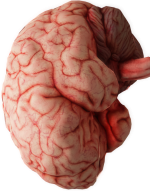


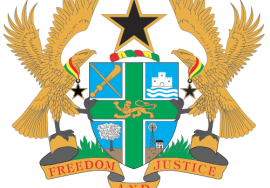
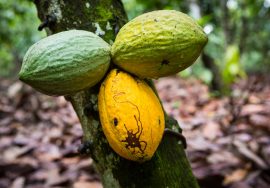
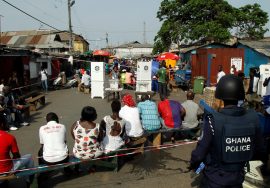

I loved as much as you will receive carried out right here. The sketch is attractive, your authored material stylish. nonetheless, you command get got an edginess over that you wish be delivering the following. unwell unquestionably come further formerly again as exactly the same nearly very often inside case you shield this increase.
Thanks we are doing our bit
What can we do, we have to make Ghana a nation of thinkers.
Ghana must succeed.Thanks.
Thank you we are still trying.